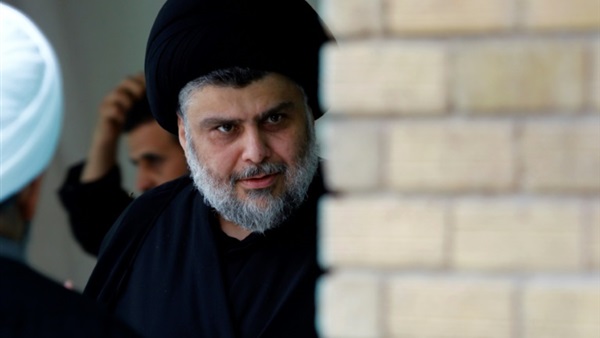Why chameleon cleric Muqtada al Sadr has abandoned Iraqi protesters for Iran

Shafaq News/ Iranian interests in Iraq scored two significant wins this weekend.
First, an Iran-supported militia, likely Asa'ib Ahl al Haq or Kata'ib Hezbollah, launched three rockets into the U.S. Embassy compound, wounding one person. Second, political cleric Muqtada al Sadr abandoned the Iraqi protest movement and threw his support behind Iran.
The rocket attack reflects Iran's continuing frustration that no Americans have yet been killed in retaliation for the killing of Qassem Soleimani. And by hitting a dining facility on the compound, those responsible are showing their Iranian hand. These rockets had a good chance of actually killing someone rather than simply hitting open ground on the compound. Iran-supported and -directed proxies would not have launched attacks posing such a threat to American lives unless Iran had action. Washington Examiner said.
This attack forms another prong in Iran's increasingly hostile policy toward the United States.
Yet it is the other development, with Sadr, that will have Iran most happy on Monday. The Shiite cleric and leader of the most powerful political bloc in Iraq's parliament has recentered himself in the orbit of Iran.
Until now, Sadr had supported Iraq's protest movement against Iran-led corruption in Baghdad politics. But Sadr now says he cannot accept continuing property destruction. While Iraq's nationalist Shiite leader, Grand Ayatollah Ali Sistani, and some Sadrist officials still support the protesters, Sadr's abandonment is quite damaging.
It represents yet another chapter in Sadr's chameleon political career. After all, he has spent the past two years carefully redesigning his image away from that of an Iranian puppet and into an Iraqi nationalist who values constructive alliances first and foremost. Reflecting as much, Sadr chose the communists as a key ally in the 2018 elections. Shiite Islamists and communists might not have much in common, but they share a message of emancipation for the poor.
So, why has Sadr now thrown his weight behind Iran?
Coming off the back of a recent trip to Iran, the cleric has clearly decided he can gain more from Iran at this moment than he can gain from working against it. The Iranians had been infuriated by Sadr's prior support for the protesters, but they recognized that Sadr has a large and devoted following. That gave Sadr a chance to gain something with his shift in allegiance. In turn, Iran will have offered something to Sadr in return for his new allegiance.
Two possibilities are Iran's assurance of Sadr's influence over the evolving makeup of the Iraqi government, or, his increased access to financing. At the same time, Sadr's independence from Iran has become more difficult following Soleimani's killing. The very public manner of the general's killing, on a Baghdad airport highway (it would have been far better to disappear him quietly), has consolidated Iraqi Shiite parliamentary sentiment around hostility toward America. Rejecting that narrative, Sadr risked jeopardizing his identity as a credible resistance force against the U.S.
Nevertheless, we shouldn't assume Sadr is firmly and finally back in Tehran's corner. The chameleon cleric is too politically savvy and too domestically powerful to become Iran's puppet. He'll change course again at some future point. But at this moment, Sadr believes he needs to be in Iran's corner rather than standing against it.